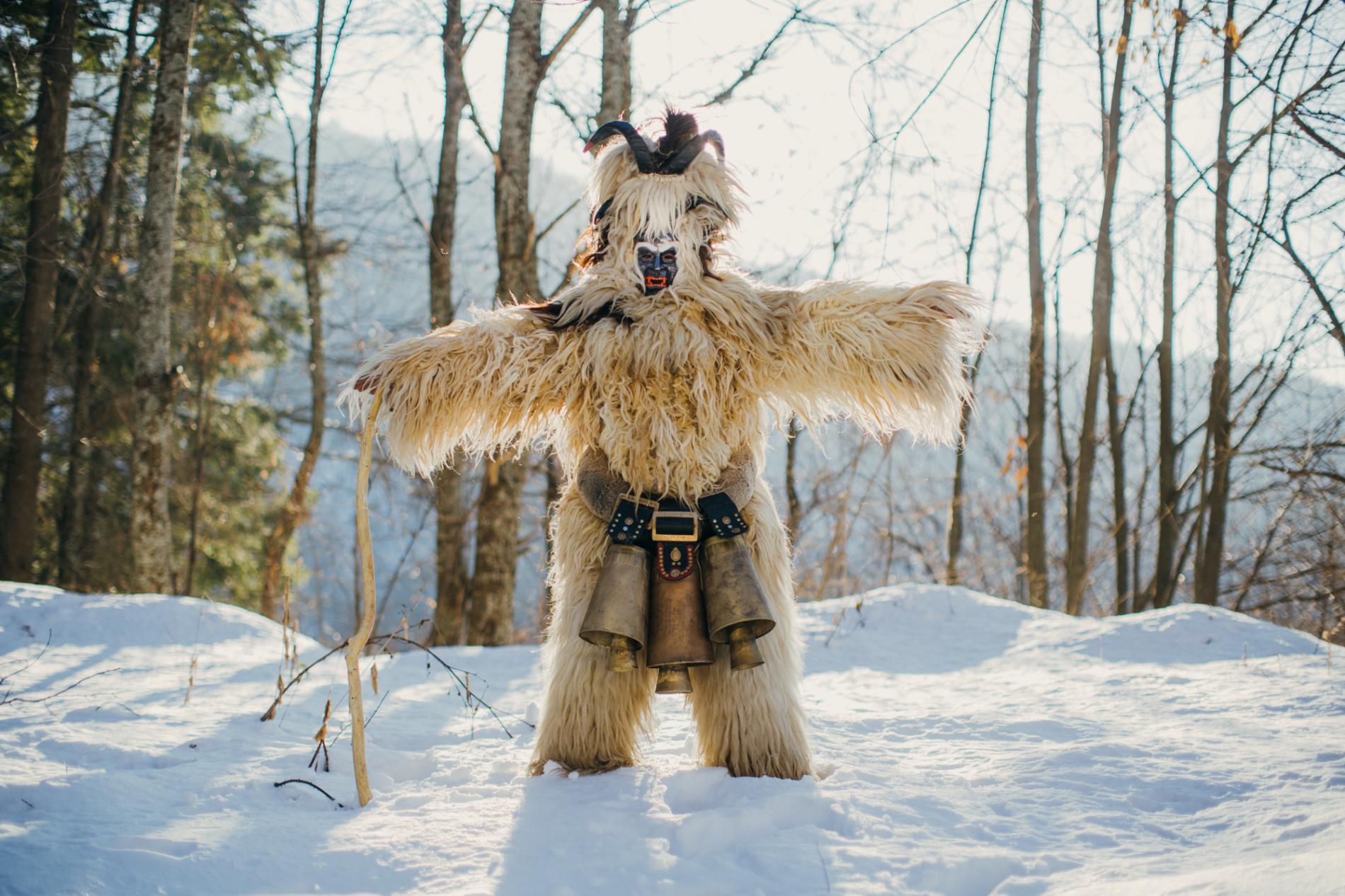Bulgaria’s Kukeri Dancers

“If you ever saw [the kukeri], they’re just too amazing,” says Gerald Creed, an anthropology professor at Hunter College and the Graduate Center, CUNY. “They monopolize the senses. You can’t look away.”
The ritual is a public one, profoundly ancient, full of spectacle and metaphor. Around early winter or midwinter, groups of kukeri (pronounced KOO-kuh-ree) don elaborate costumes—complete with fantastical masks and belts of massive metal bells—and accompany musicians throughout the village, dancing rhythmically to drive away evil and invite good.
That’s the simple version. Creed, whose decades of study in Bulgaria led him to write a book on kukeri practice, would be the first to tell you there’s more to it than that.
He describes them as “multipurpose” rituals: The bells’ clanging and the costumes’ shocking faces divert the evil eye, but the mummers’ dancing path throughout the village also invoke the fertility of people, animals, and agriculture. Kukeri rituals have also served as coming-of-age ceremonies for young men.
Read More or Watch the video below: